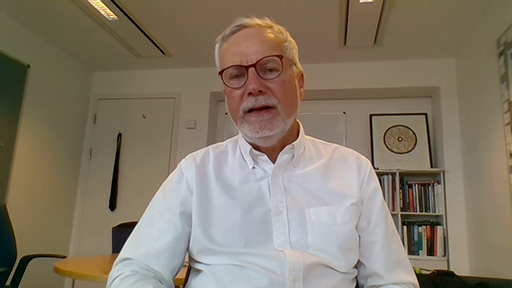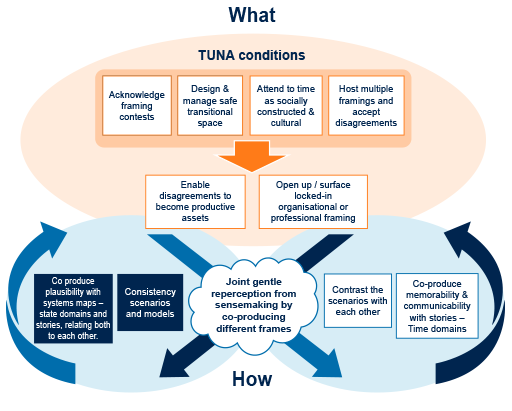5.2 The Oxford Scenario Planning Approach
The Oxford Scenario Planning Approach (OSPA) focuses on scenarios and strategic options should something change to an organisation’s status quo, either as immediate issues, or to plan for possible versions of the future.
The OSPA is particularly robust as it ensures that the scenarios created are actually used by the person they are developed for and for the purpose that they were devised. Professor Rafael Ramírez (Professor of Practice, Saïd Business School, University of Oxford) defines scenarios as ‘a small set of manufactured possible future contexts of something for someone for a purpose with a pre-specified use interface [and that is its] actual use’.
In the video below he explains OSPA further.

Transcript: Video 13 Introduction to Oxford Scenario Planning Approach
In the video, Professor Rafael Ramírez refers to TUNA conditions – Turbulence, Uncertainty, Novelty (& unique) and Ambiguity. This may help to reframe scenarios as a social process in times of uncertainty, in order to consider and search for new ways to survive and succeed. Figure 21 provides more information.
Activity 15 Thinking about TUNA conditions
Reflect on Video 13 ‘Oxford Scenario Planning Approach’ and how you might reframe scenarios drawing on the TUNA conditions described. How might the impact of these conditions influence decision-making and help you respond to your external environment?
You may wish to make notes on this below.
Discussion
Managing and responding in times of uncertainty, requires the confidence to make decisions based on unknown factors to try to mitigate risks. Exploring TUNA conditions can help to reframe and consider the alternative futures that may unfold, to allow you to develop scenarios and design approaches for a number of eventual possibilities.
In the next section we focus on Islands in the Sky, created by Dr Matt Finch, and how it draws on elements of OSPA, to provide a simplified approach to enable teams and organisations to carry out rapid scenario planning – as was required during the height of the COVID-19 pandemic in 2020 – when organisations were dealing with continual uncertainty. The approach offers a framework for those less familiar with futures and scenario planning to engage with different approaches, feel comfortable planning for the unknown, and consider future possibilities.

